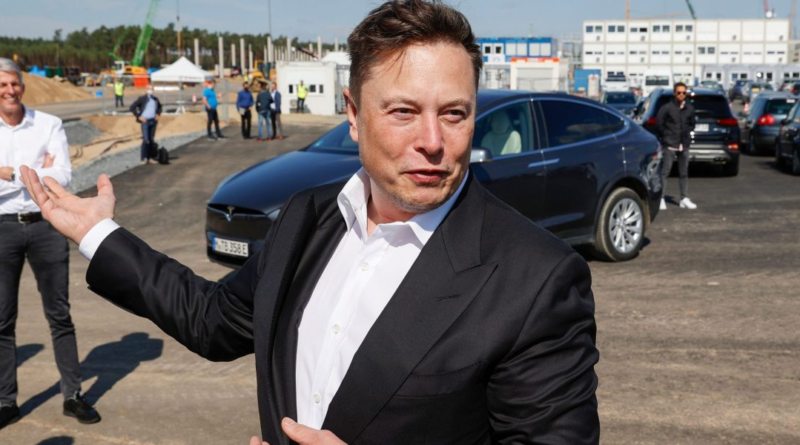Tesla reports its first year-over-year sales decline since the pandemic—and its shares are plummeting
Tesla shares fell double digits on Tuesday after the company missed analyst expectations with its first year-over-year sales decline since the pandemic.
Elon Musk’s EV maker reported vehicle deliveries of 369,783 for the first quarter, well short of the consensus estimate of 449,080 deliveries, according to data compiled by Bloomberg. Its shares, already some of the worst-performing in the S&P 500 this year, fell as much as 6.7% on the news before slightly rebounding. The stock was trading down 5% at about $165 as of Tuesday afternoon.
Tuesday’s lackluster deliveries report (an approximate gauge for sales) comes after even some of the most optimistic analysts have recently sounded the alarm on Tesla’s performance. In an interview with CNBC last week, notable Tesla bull Dan Ives of Wedbush Securities said the company was in a “code-red situation.”
Other market onlookers have quietly suggested it may be time for Musk to step away from the CEO role and focus on innovation. Calls for a shakeup in Tesla’s leadership have ramped up in light of Musk’s incendiary comments and embrace of right-wing politics, which survey data suggest could be hurting sales.
Tesla blamed its subpar delivery numbers on the early production ramp of its updated Model 3 at its Fremont, Calif., factory, as well as shutdowns due to shipping disruptions in the Red Sea and an arson attack at its Gigafactory in Germany.
In a series of posts Tuesday, Ross Gerber, the CEO of Gerber Kawasaki Wealth & Investment Management, said he wasn’t buying Tesla’s explanation for its poor performance—and put the blame squarely on Musk.
Basically tesla can’t sell its cars due to Elon’s behavior. Let’s stop blaming the Houthi rebels or German environmental terrorists. Or a recession that never came. Or interest rates. Only one person responsible for this. $TSLA
— Ross Gerber (@GerberKawasaki) April 2, 2024
The company has also faced heightened competition from Chinese car companies, whose lower-priced models have made inroads outside of China and continue to threaten Tesla’s EV dominance. Despite its lackluster numbers in the first quarter, Tesla regained its lead in terms of quarterly vehicle deliveries from Chinese carmaker BYD, which had surpassed it for the first time at the end of last year.
In an effort to stay competitive and increase revenue, Tesla cut prices for several of its best-selling models last year, including the Model Y and Model 3, which make up more than 95% of its sales.
The company also reversed its long-held aversion to marketing and has increased its spending on digital advertising in the U.S. by 900 times compared to a year prior, according to market intelligence firm Sensor Tower.
Musk also personally green-lighted free trials for the company’s Full Self-Driving capabilities to help attract subscribers to the $12,000-per-year feature.
Correction, April 2, 2024: A previous version of this story misstated the percentage decrease in Tesla’s stock.




